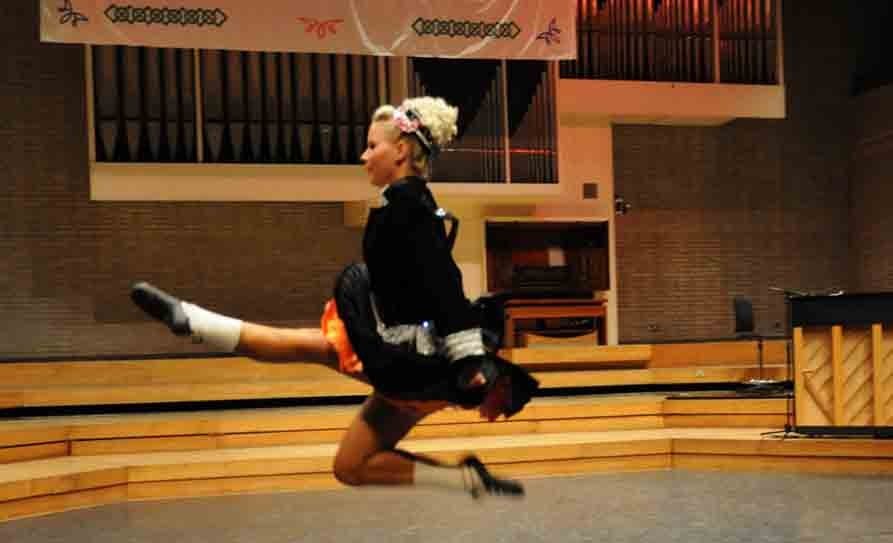Irish dancing might sound like a lovely cultural hobby, but judging by Kimberly Cooper's experience, it's certainly not for wusses.
The first-year Quest University student was nearly sidelined by two torn ligaments and a talus bone fracture this fall as she was set to compete in the western Canadian championships. "I wasn't going to compete because I was in a lot of pain," she says. "Three weeks before the competition at the end of October I decided I was just going to do it. So I came home (to Calgary) and I trained and got intensive physiotherapy and ended up winning."
As a result of her grin-and-bare-it approach, the 19-year-old secured a spot to compete in the Oireachtas Rince na Cruinne, otherwise known as the Irish dancing World Championships, in Boston from March 24 to 31. "(Injuries) are very common," she says. "A lot of girls have shin splints and knee injuries because we land everything on a straight leg because it looks better for our type of dancing."
She's planning to have surgery (and a forced break) after the major competition, but for now she's focused on the event. Although it runs for a full week, the dancers only have about a minute and a half to impress judges and move onto the next round. "It's very hit and miss if you're in your zone or not," Cooper, who has been dancing for 14 years, adds. "It's all about how you dance on that day and the judges and whether they like your style. Getting ready and preparing yourself for that day is a big thing."
To that end, Quest's "block" programming, with three-and-a-half week courses followed by time off, has helped accommodate Cooper's intense practice schedule of three to four hours a day, six days a week leading up to a competition.
This will be Cooper's fourth time qualifying for worlds. She's optimistic about the competition, but a little worried about her injury. "You're always hopeful," she says. "Right now I'm kind of injured, so that's always playing in the back of your mind."
For the competition she will have to perform two different styles of dance: one in hard shoes — which she describes as similar to tap dancing — and the other in soft shoes, similar to ballet slippers. The former focuses on beats and intensity while the latter puts intricate movements on display. Though Cooper has been told that she's a natural at soft shoe, she prefers hard."I find hard shoe just makes the beats really intriguing," she says. "It's definitely harder to do hard shoe dance than soft shoe and that might be why I like it better."
On top of performing fast-paced, intense dances that require endurance (in other words: "It's more of a sprint than long distance, if you want to put it that way") competitors also don traditional costumes. "The dresses and wigs are actually fairly heavy, as are the shoes," Cooper says. "But you get used to it after a while."
She is just one of around five dancers representing western Canada at the event — along with seven more from the east. In total, she will have to compete against 100 to 150 other girls. "It's a really unique dance," she says. "It's very hard on your body, but I like that. I like the challenge. The people in Irish dance are very kind and supportive. It's through that that I've grown to love it."




